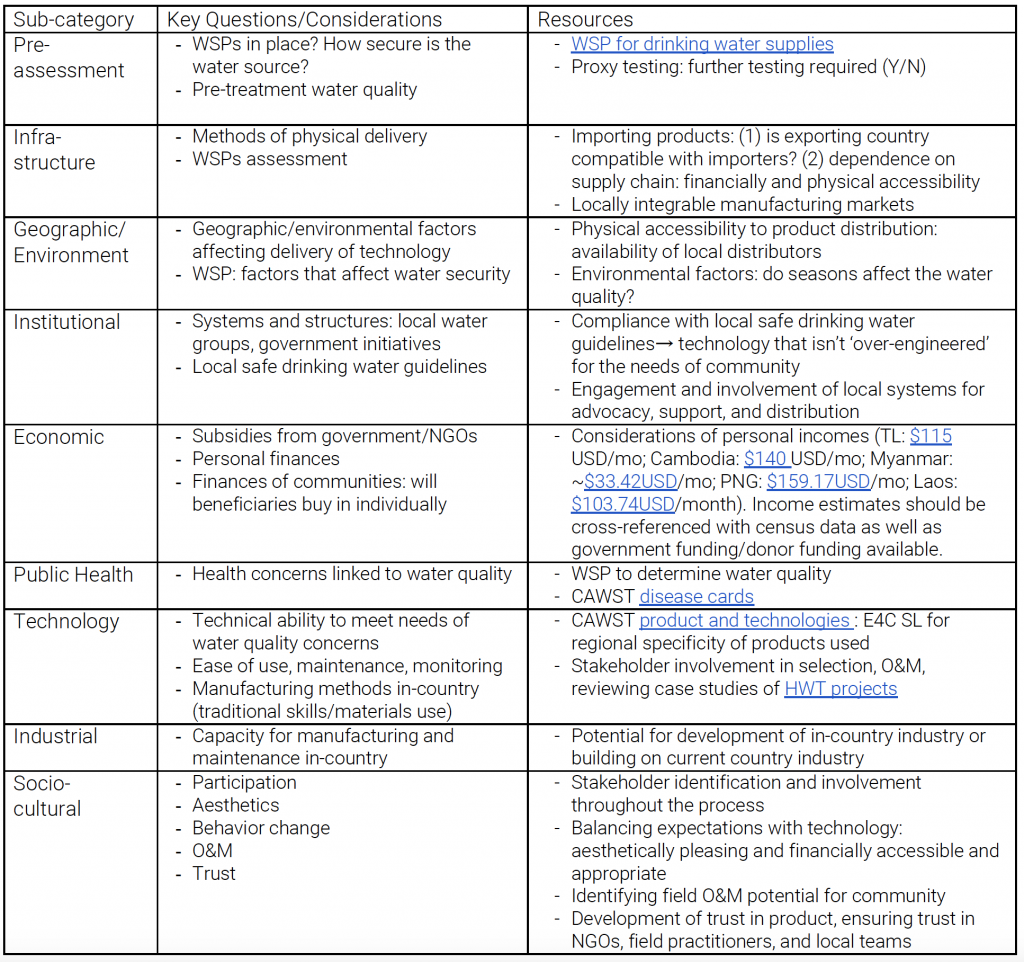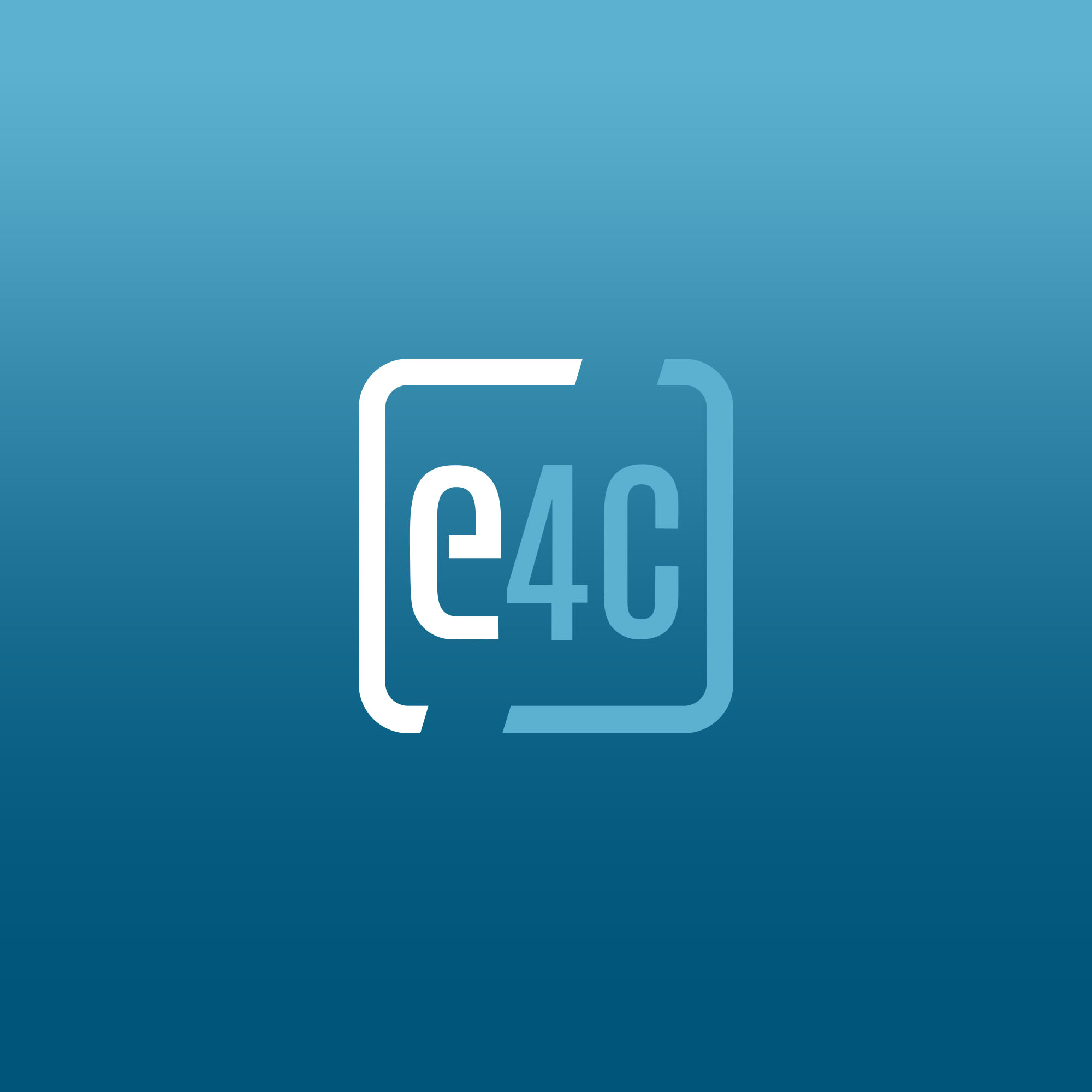EDITORIAL TEAM: Carolina Rojas, E4C Expert Fellow; Mariela Machado, E4C Program Manager; Grace Burleson, E4C Research Manager
PARTNER COLLABORATORS: Dr. Jeremy Smith, Australian National University; George Goddard, Engineers Without Borders-Australia
Click here to view the full report.
Sustainable Development Goal Target 6.1 calls for universal and equitable access to safe and affordable drinking water. However, with 2030 fast approaching, an estimated 785 million people still lack access to clean and safe water. Rural areas within Southeast Asia and the Pacific are particularly vulnerable due to lack of support for implementations of point of consumption (PoC), water security measures.
Household water treatment (HWT) is an effective measure for improving the safety of water at PoC, if centralized water security measures fail. However, HWT is often not a priority for local governments or large NGOs, who may be more focused on community and municipality level interventions. Thus, HWT interventions are often taken up by smaller NGOs passionate about promotion safe water in communities. HWT technology selection and implementation is a complex area to address, as a number of factors need to be considered within the process. Selection of appropriate technology is often aided or justified by decision-making frameworks, of which have unique contextual categories for consideration. The need for support for the decision-making process has resulted in the development of numerous tools within the Water, Sanitation, and Hygiene, (WaSH) sector. However, of these tools for selection of “most appropriate technology/approach/system”, there does not exist a singular decision-making framework for selection of household water treatment technology. The reason for this may be that HWT is not a priority in most contexts, it is a stop-gap, most countries are more focused on wider spread solutions of which do not have the complexity of individual considerations.
Technologies may successfully address the water quality concerns and water needs of a user, however, it may not be appropriate to the context. Appropriateness of technology to context is a significant factor to address in determining the sustainability of a solution. The Centre for Appropriate Technology (CfAT), echoes this sentiment by stating, “a piece of technology or infrastructure has no value without utility to those in the community. It is what we can do with it, rather than the thing itself that is of value. Therefore, the engagement, education and training surrounding the installation or construction of something in a community will determine its success or otherwise.” Therefore, the ability of solutions to meet the unique needs of the users is subject to external factors beyond the technical capabilities of the technology4. Understanding of these factors and their implications allows for informed selection of technologies most appropriate to context. In collaboration with Engineers Without Borders (EWB)-Australia and the Australian National University, this research aims to investigate the parameters and conditions that should be considered for the selection of household technologies for treatment of water in Southeast Asia and the Pacific, in an ongoing effort to inform decision-making practitioners.
To gain understanding of the factors and considerations in HWT technology selection and implementation, we investigated practices in countries in Southeast Asia and the Pacific. Cambodia, Laos, Myanmar, Timor-Leste, and Papua New Guinea were selected as they align to where the research collaboration partner, Engineers Without Borders (EWB)-Australia works. Desktop research, and interviews with field experts within the sector and regions were conducted to gain experienced-based requirements of decision-making support tools and current state of HWT. Ten individuals from various organizations provided field insight into HWT within the select countries. Experts included five country-specific experts, three global WaSH advisors, two HWT field experts, two WaSH experts, and one HWT decision tree developer (for their privacy, all interviewees are anonymized in this report). Interviews with experts provided insight into technology procurement, provision, and sustainability of solutions. These data assist in identifying key factors for consideration in selection of HWT options.
Decision Framework for Household Water Treatment
Click here to view the full report.

